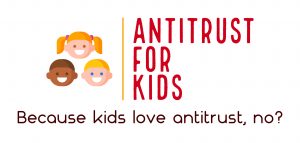Authors: Jack Prindle and Steve Cernak
Note: Jack Prindle is a student at the University of Virginia School of Law joining Bona Law for the summer.
The DOJ’s Antitrust Division would like to remind everyone that it will not be going anywhere. Despite expectations in some quarters of laxness surrounding the old-made-new administration, antitrust cases and investigations are carrying on unabated. One particular trend has reappeared alongside President Trump in 2025: price fixing, bid rigging, and similar crimes will be severely punished.
The core mission of the Antitrust Division has not changed with the new administration. Bad actors interfering with free-market competition can still expect to be investigated and prosecuted. Take, for example, the recent incarceration of an asphalt paving executive guilty of bid rigging in Michigan. Because he pleaded guilty in 2023, it would be tempting to chalk this up as a hangover from a more prosecution-happy administration. But he was sentenced in May and it does not appear that the DOJ or the judge went easy on him. Similarly, several of his coconspirators pleaded guilty in January of 2024, which makes it clear that the Antitrust Division has not missed a step. When it comes to these types of antitrust violations, there is no difference in enforcement between the previous Democratic administration and this Republican one.
There are some changes in form, though. The Trump administration views antitrust enforcement as consistent with its broader policy goals and so has used the broad range of tools and responsibilities available to the Antitrust Division. The perpetrators of a bid-rigging scheme in Idaho found out about this shift the hard way.
On the surface, this case mirrors the case in Michigan. Here, the conspiracy decided who would win Forest Service firefighting contracts before the bidding process. But in challenging this conspiracy, the DOJ went further this time. Besides bid rigging, these defendants were charged with conspiracy to monopolize and wire fraud. The broader charges allowed the government to pursue greater sentences for convicted individuals. They also sent a clear signal that any market participant considering anticompetitive behavior should expect a heavy punishment. DOJ Assistant Attorney General Abigail Slater and FBI Assistant Director Jose A. Perez both emphasized that these cases were sending a message to deter future anticompetitive schemes elsewhere.
The Antitrust Division has expanded its purview even further to encompass wire fraud and money laundering, even without a traditional antitrust violation. In 2019, the Antitrust Division announced the formation of the Procurement Collusion Strike Force to investigate and prosecute anticompetitive behaviors involving government contracts or the use of federal funds. While this initiative works on clear antitrust cases, like the Idaho Forest Service contracts case described above, it also coordinates with other departments to pursue cases that are less directly antitrust related. The Naval Criminal Investigative Service (NCIS), Coast Guard Investigative Service, and Department of Defense Office of Inspector General Defense Criminal Investigative Service led the way on the fuel fraud scheme linked at the start of this paragraph, for example. The breadth of the assignments given to the Antitrust Division highlight its role as a messenger of wider administration goals.
 The Antitrust Attorney Blog
The Antitrust Attorney Blog












